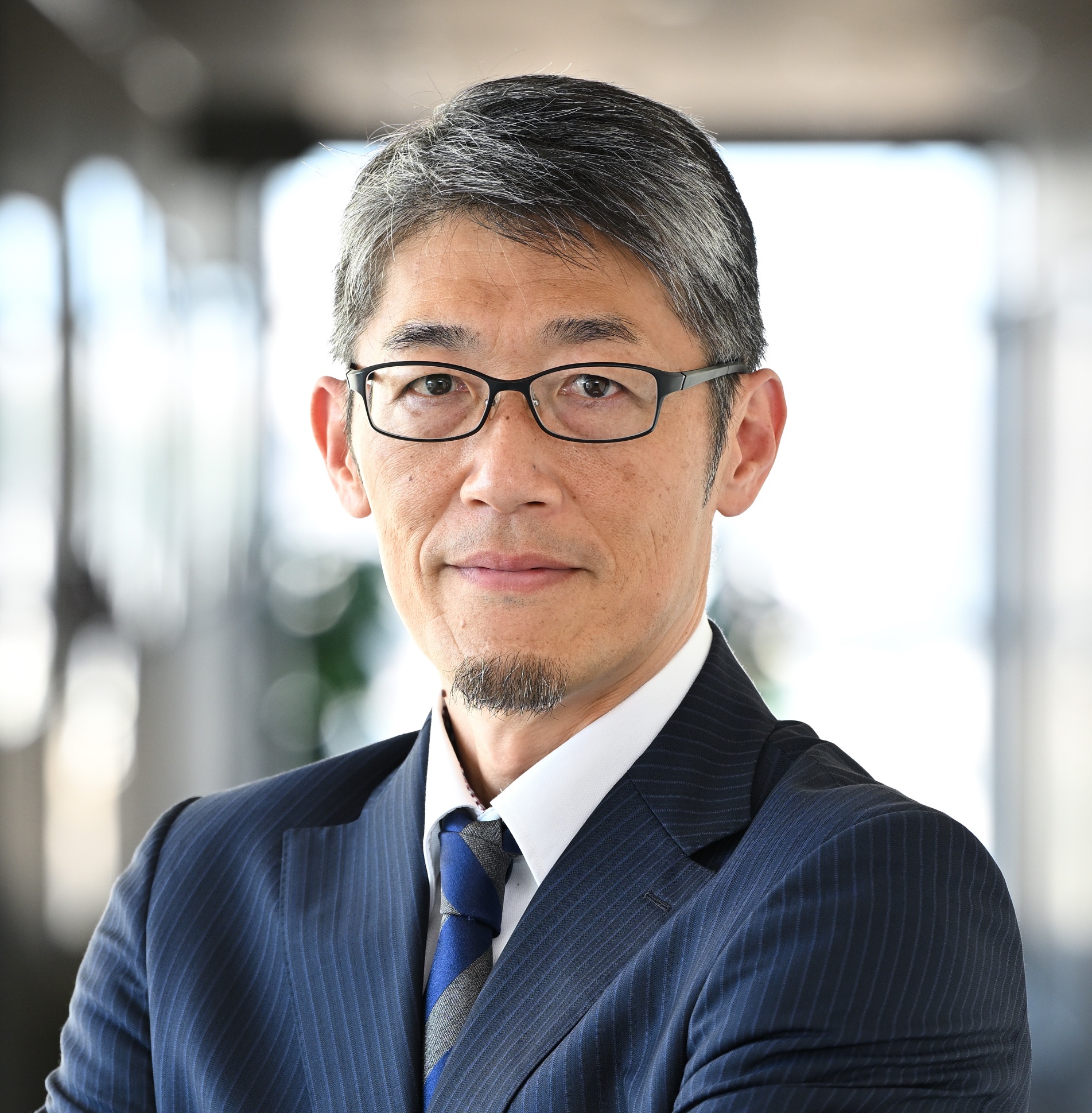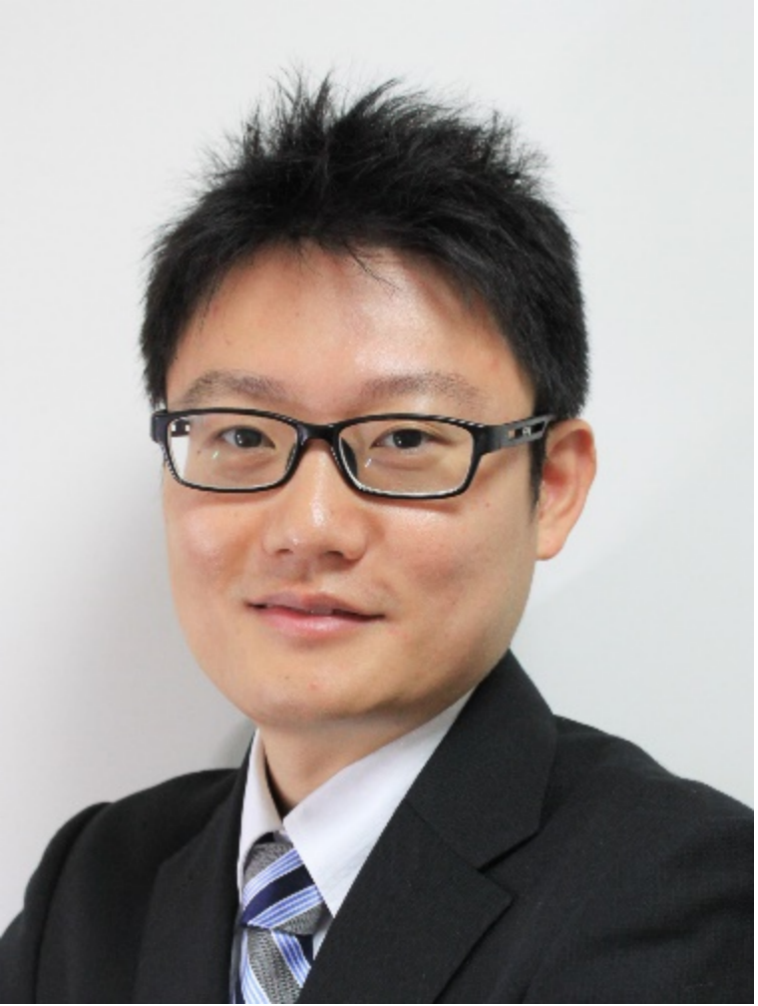 Keynote
Speakers
Keynote
Speakers
Keynote Speaker
I

Prof. Tomoaki Otsuki, Keio University, Japan
Tomoaki Otsuki
(Ohtsuki) received the B.E., M.E., and Ph. D. degrees in
Electrical Engineering from Keio University, Yokohama,
Japan in 1990, 1992, and 1994, respectively. From 1994
to 1995, he was a post-doctoral fellow and a Visiting
Researcher in Electrical Engineering at Keio University.
From 1993 to 1995, he was a Special Researcher at the
Fellowships of the Japan Society for the Promotion of
Science for Japanese Junior Scientists. From 1995 to
2005, he was with the Science University of Tokyo. In
2005, he joined Keio University. He is now a Professor
at Keio University. From 1998 to 1999, he was with the
department of electrical engineering and computer
sciences, University of California, Berkeley. He is
engaged in research on wireless communications, optical
communications, signal processing, and information
theory. Dr. Ohtsuki is a recipient of the 1997 Inoue
Research Award for Young Scientist, the 1997 Hiroshi
Ando Memorial Young Engineering Award, Ericsson Young
Scientist Award 2000, 2002 Funai Information and Science
Award for Young Scientist, IEEE the 1st Asia-Pacific
Young Researcher Award 2001, the 5th International
Communication Foundation (ICF) Research Award, 2011 IEEE
SPCE Outstanding Service Award, the 27th TELECOM System
Technology Award, ETRI Journal’s 2012 Best Reviewer
Award, 9th International Conference on Communications
and Networking in China 2014 (CHINACOM ’14) Best Paper
Award, 2020 Yagami Award, The 26th Asia-Pacific
Conference on Communications (APCC2021) Best Paper
Award, International Conference on Internet of Things,
Communication and Intelligent Technology (IoTCIT) 2024
Best Paper Award, and the 2024 6th International
Conference on Robotics, Intelligent Control and
Artificial Intelligence (RICAI2024) Best Paper Award. He
has published more than 325 journal papers and 550
international conference papers.
He served as a Chair of IEEE Communications Society,
Signal Processing for Communications and Electronics
Technical Committee. He served as a technical editor of
the IEEE Wireless Communications Magazine and an editor
of Elsevier Physical Communications. He is now serving
as an Area Editor of the IEEE Transactions on Vehicular
Technology and an editor of the IEEE Communications
Surveys and Tutorials. He is also serving as the IEEE
Communications Society, Asia Pacific Board Director. He
has served as general-co chair, symposium co-chair, and
TPC co-chair of many conferences, including IEEE
GLOBECOM 2008, SPC, IEEE ICC 2011, CTS, IEEE GLOBECOM
2012, SPC, IEEE ICC 2020, SPC, IEEE APWCS, IEEE SPAWC,
and IEEE VTC. He gave tutorials and keynote speeches at
many international conferences including IEEE VTC, IEEE
PIMRC, IEEE WCNC, and so on. He was Vice President and
President of the Communications Society of the IEICE,
also he was a distinguished lecturer of the IEEE. He is
a fellow of the IEICE, a Fellow of Asia-Pacific
Artificial Intelligence Association (AAIA), a senior
member of the IEEE, and a member of the Engineering
Academy of Japan.
Keynote Speaker
II

Prof. Lei Zhong, Toyota Motor Corporation, Japan
Lei Zhong
received the Ph.D. degree from the Graduate University
for Advanced Studies, Japan, in 2011. He is a Principal
Researcher in the InfoTech Division at Toyota Motor
Corporation, where he leads research and standardization
efforts in intelligent connected vehicles. He serves as
Toyota’s chief delegate to several major standardization
bodies, including 3GPP, IEEE, and the Wi-Fi Alliance,
and also chairs the Automotive Edge Computing
Consortium. His research interests include wireless
networking, edge computing, machine learning, connected
vehicles, and big data analytics. He has co-authored
over 80 technical publications and holds more than 40
patent applications in these fields. Dr. Zhong also
actively contributes to the academic community as
Vice-Chair of the IEEE TCGCC Special Interest Group on
Green Internet of Vehicles and serves on the editorial
boards of Elsevier Vehicular Communications, IEEE
Internet Computing, and the IEEE Open Journal of the
Computer Society.



 Keynote
Speakers
Keynote
Speakers
